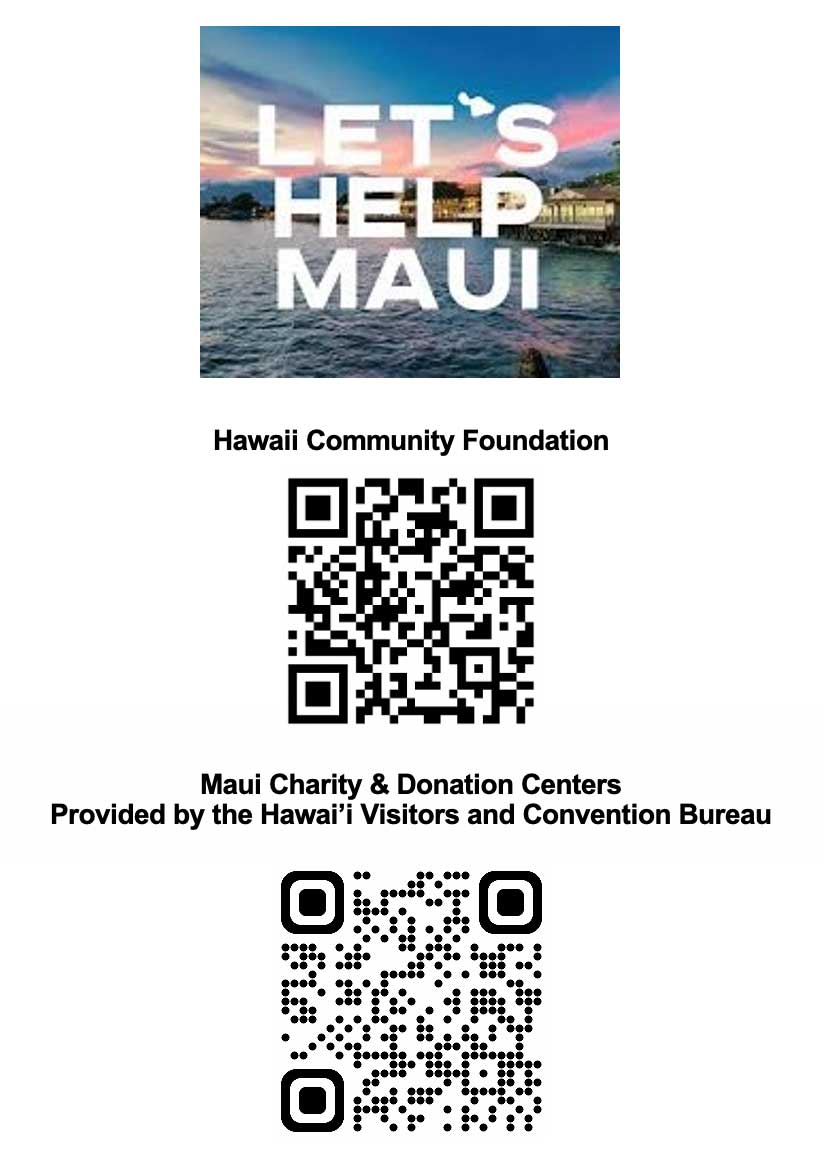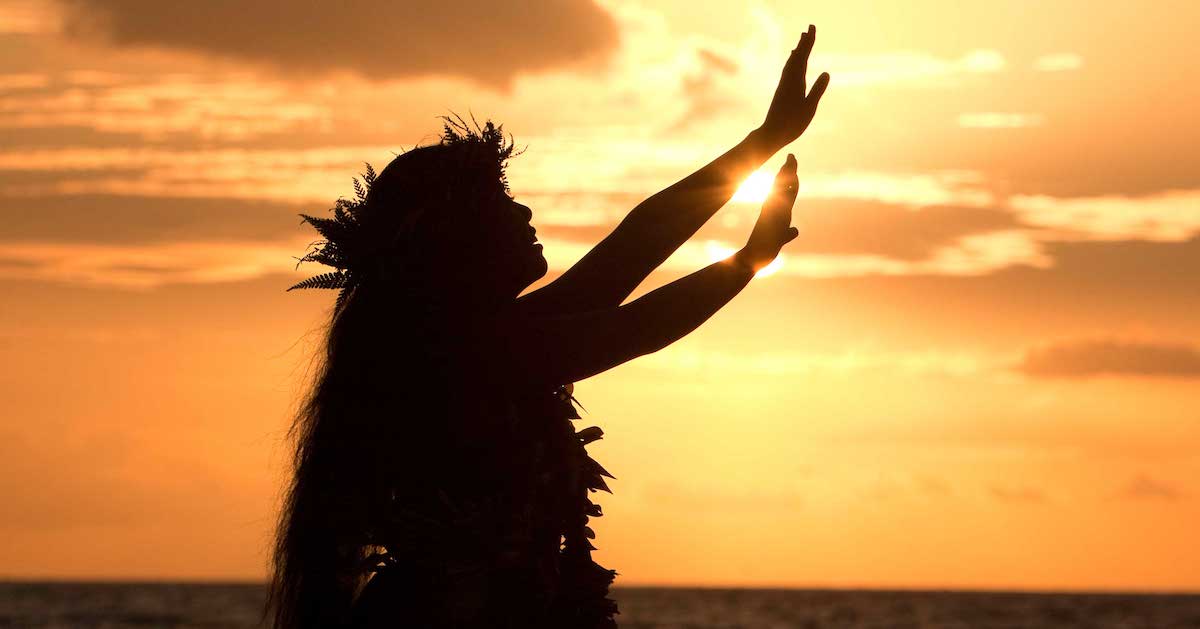Heather Bailey has a message for tourists and groups planning to visit Hawaii (and Maui in particular): Stay the course.
“Tourism is a huge driver of the economy, and many people depend on it for their livelihood,” says Bailey, the Honolulu-based vice president of operations for MC&A, a global event and destination management company with a strong presence in Hawaii, as well as director of membership - Hawaii for the MPI Oregon Chapter (which merged with the Aloha Chapter during the pandemic). “While the west side of Maui is closed, there are other areas of the island that are open and safe to travel to—one of those being the resort area of Wailea, where many of our groups operate.”
Bailey was kind enough to take some time to speak with me recently during a very stressful time for her, her team and so many others in Hawaii following the deadly wildfires that struck Maui so suddenly. She shared a message about the importance of not canceling visits to Maui (an opinion shared by the Hawaii Tourism Authority), and also about how her team dealt with the wildfires and some inspiring stories that highlight the “spirit of Aloha” that’s synonymous with Hawaii.

You’ve likely heard some conflicting messages in the media about whether it’s appropriate to travel to Maui right now. While some of that stems from celebrities perhaps speaking out of turn, Bailey says it’s also partially attributable to some local groups of individuals who would prefer to reduce tourism on Maui and in Hawaii in general.
“That was already in place pre-COVID, but they became even more vocal during COVID and after. I’m of the opinion that a balanced approach to tourism is important,” she says. “I’ve been on daily calls with clients, still encouraging them to come. We have to be able as a community to support the recovery efforts, not just in what we do in those areas that were directly impacted, but also by continuing to allow those who want to work to continue to do so—those who need to earn an income, those businesses that won’t survive without tourists. We have to be able to continue to encourage tourists to travel to Maui and be respectful while they’re here.”
MPI pledges support: Learn how MPI is helping the Maui events community through localized relief and extensions to the Hawaii membership community, thanks to the MPI Foundation.
Bailey says that for those in Wailea area, it would be an economic disaster to lose tourism and group business, with many there not only devastated by the wildfire disaster, but the prospect of losing their jobs.
“Certainly, we’re hoping that their first choice is to continue and operate their group in Maui. Our second choice, of course, would be that if they can't operate in Maui, they would consider trying to relocate within the state of Hawaii,” she says. “That’s very important for all of our people. Many companies here in Hawaii support not just Maui, but other islands. So what happens there does impact all of us.”
It happened so fast
One of the things Bailey has been hearing from her team members is that what you see in the media doesn’t even begin to touch the scope of the wildfires’ impact.
“The two main resort areas of Maui that anybody might hear about are the west side, which is where Lahaina is, and then south Maui, which is the Wailea resort area, Kihei and Makena,” she says. “We have a lot of people who live and commute from the west side. We have people that live in Kihei, which had fires as well, and a lot of people don’t hear about that because they’re very focused on Lahaina.”
One thing that stands out to Bailey about this experience is how it happened so fast.
“We were a little frantic that first day,” she says. “I went to bed with text messages from some of my teams saying, ‘Hey, I think I’m going to have to evacuate. It’s kind of bad here.’ The next morning, seeing the news and seeing the additional text messages that had come in from my team, it was just scary. I had team members that were with clients on site visits on the west side and we couldn’t reach them. That was stressful. Thankfully, we accounted for them and for clients.”
In the days immediately following the wildfires, business was essentially on pause.

“People needed to account for their team members, their friends, their families,” Bailey says. “They needed some time to get situated. So it certainly made sense at that point to, say, ‘Hold on, we have to kind of pause right on Maui.’ We have a team that does a lot of work doing meet-and-greets at the airport. That was put on pause for about a week just to give everybody time to assess the situation. We had some site visits that were scheduled, and we worked with our clients and hotels and said this, ‘This isn’t the right time to do the site visit. People were very understanding.”
Bailey says it was also imperative to determine how her team was impacted before moving forward.
“Were they able to continue to provide services? And then also our vendor and hotel partners: Are they in a position to provide services?” she says “We know there will be some impact on staffing availability as people may have to focus on their personal situations. We’re addressing that with our clients and working collaboratively with them to make sure that the experience that we can provide with their guests is positive for the guests and respectful to the community.”
Of the many stories from team members and colleagues forced to evacuate, Bailey says one that she found particularly heartbreaking was a team member and her family evacuating while the intense heat was peeling the paint off their car.
“It’s horrifying to hear that,” she says. “And other team members have generational families that live in Lahaina that are from Lahaina and have family members who have lost everything or family members who haven’t yet been accounted for.”
The ‘spirit of Aloha’
Because there’s only one main road into the area most devastated by the wildfires—and that road was closed for several days—providing much-needed supplies was a challenge, Bailey says. But this is one area where the community was eager to immediately pitch in.
“You’ve got Kaanapali, Kapalua, those areas north of Lahaina that also had people. Workers, families and guests were still in the area and needed supplies, but it was really difficult to get things to them,” she says. “So there were a lot of grassroots efforts that kind of sprung up. People were throwing supplies in boats and driving around to drop them off wherever they could. But now that they have more infrastructure in place, they’ve been better able to start mobilizing supplies into the areas that need them the most.”
Bailey also heard from one of her team members who reported that a rafting company that partners with MC&A was loading up rafts and delivering supplies.
“We have to be able to continue to encourage tourists to travel to Maui and be respectful while they’re here.”
“And one of our freelance travel directors reached out and said, ‘Hey, if you have anyone that wants to help, we’re all meeting in Kahului and we’re getting bussed up to Lahaina Gateway (a shopping center) and we’re distributing supplies.’ I have team members on other islands that are like, ‘When MC&A is ready, if we’re supporting any boots on the grounds, I want to be a part of it.’ It’s amazing to see people pull together in that way.”
The MPI Oregon Chapter recently had a social event and asked where they could direct donations and encourage members to direct donations in order to increase visibility, Bailey says.
“The response was pretty immediate and there really is that feeling of Aloha that we talk about here in Hawaii—the Oregon Chapter really had embraced that with us, and they were ready to ask what they could do to help,” she says.

